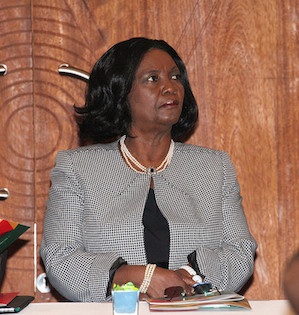The Financial Administration Act, 2003 (Act 654) has been amended to enable the Chief Justice to appoint a sole judge to adjudicate over the Financial Administration Court.
The court has jurisdiction to enforce recommendations of the Public Accounts Committee on the Auditor-General’s report as approved by Parliament.
Consequently, Section Three of Act 760 of the Financial Administration (Amendment) Act, 2008 (Act 760) repealed the Panel System, made up of a Justice of the High Court as chairperson, a Chartered Accountant or a professional valuer as member, and introduces the Single Judge System.
This is contained in a letter signed by Justice Juliana Amonoo-Neizer, First Deputy Judiciary Secretary, to The Ghanaian Times in response to a request for clarification of a story it published on April 21, 2015.
The Ghanaian Times had carried the story of a seeming deadlock between Parliament and the Judiciary over which court had jurisdiction over the hearing of cases of public officers found culpable of financial malfeasance by the Auditor-General’s report on public accounts.
The Public Accounts Committee of Parliament, which has oversight responsibility over the public purse, has often come under criticism for engaging in an exercise in futility because of its inability to enforce the prosecution of public officers cited in the Auditor General’s report for embezzlement.
Although the statement said “we hope this explanation will bring finality to this matter and clear any lingering doubt about the nature and functions of the Financial Administration Court,” a source at Parliament said “the issue still remains a grey area which the leaderships of Parliament and Judiciary have to reconsider.
The source said it was not clear as to who should initiate prosecution by enforcing the recommendations of the Auditor-General’s Report on Public Accounts as approved by Parliament, to among others, recover monies and assets or other property due to the republic.
The letter from the Judicial Service explained that to ensure effective and efficient management of government revenue, expenditure, assets, liabilities and the resources of government, the Financial Administration Act, 2003(Act654) was enacted in 2003.
The law, according to the letter, prescribed the responsibilities of persons entrusted with the financial management of the public purse, with the corresponding penalties in case of default.
It said Act 654 established what was known as the Financial Administration Tribunal and by S661 (1), the court was a Justice of the High Court who shall be the chairperson, a Chartered Accountant and Management Accountant.
It said in February 2014, pursuant to the Financial Administration Act 2003, (Act 654), the Chief Justice, Mrs Justice Georgina T. Wood, established two Financial Administration Courts in Accra and one each in Kumasi, Sekondi and Tamale, which commenced sitting on March 3, 2014.
The courts are yet to hear cases referred to it by findings of the Public Account Committee of Parliament in respect of public officers found culpable of financial malfeasance by the Auditor General’s Report, as approved by Parliament.
“According to the letter, the Financial Administration Court has jurisdiction over hearing and determining matters that fall for the determination under the Act, to enforce recommendations of the Public Accounts Committee on the Auditor-General’s Report as approved by Parliament, and to make such orders as it considers appropriate for the recovery of monies, assets or other property due the Republic, among others”.
The letter said the Judiciary had always maintained that its specialised financial and organised crime courts were always ready to adjudicate on matters, including cases emanating from the Auditor General’s report, as approved by Parliament.
General News of Saturday, 2 May 2015
Source: Ghanaian Times













